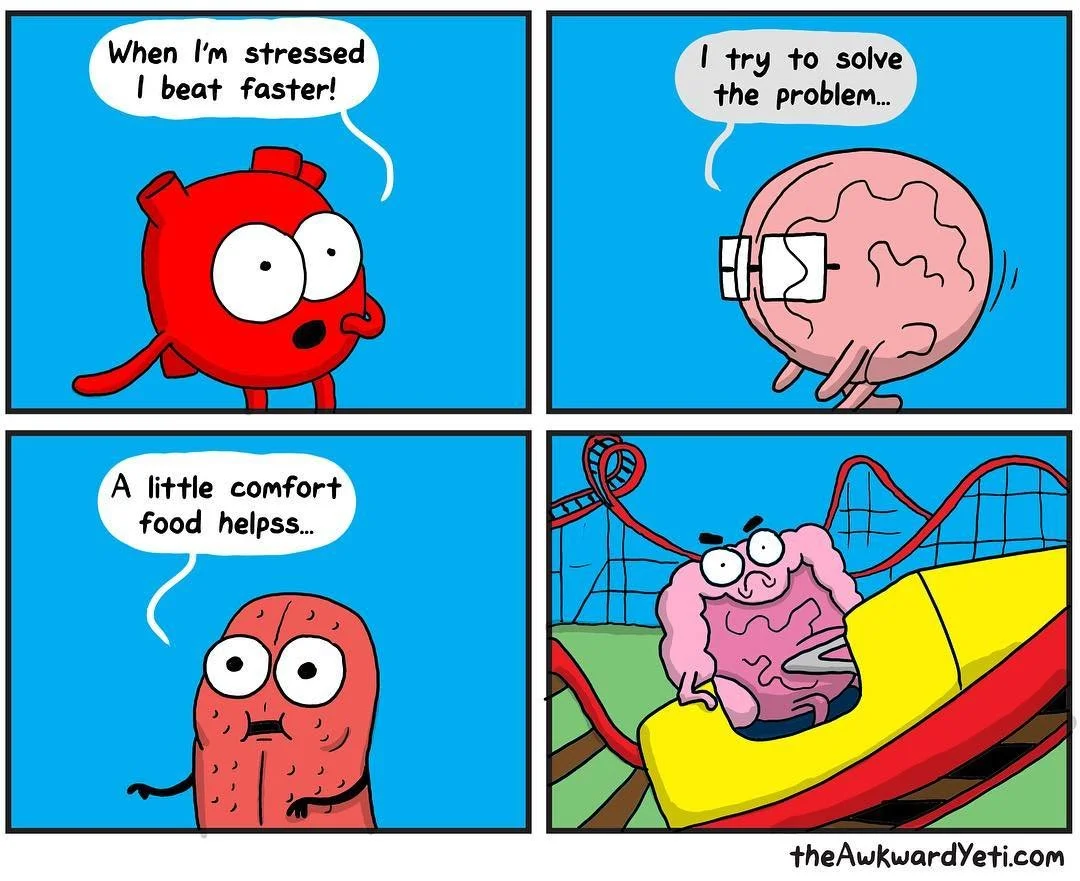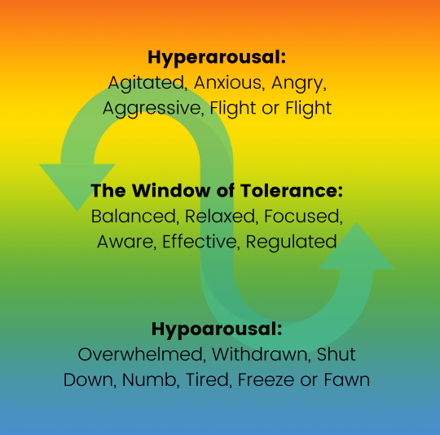Stress Management
Let’s be honest: most people don’t seek out therapy because they are feeling calm, cool and collected. Life is hard, and throws so many curveballs our way that it can be exhausting constantly navigating them. There are some basic concepts and tools related to stress that many therapists cover with their client during initial sessions. Why not outline them here, so you can get your hands on them on your own time, and at your own pace?
What is stress?
It can be confusing to understand the difference between stress and anxiety, so let’s break it down quickly. Stress is our physical or mental response to an external stimulus, such as a threat, a situation, a person or an interaction. Anxiety is our body’s reaction to stress, and whereas stress often goes away when the situation is resolved, the same isn’t always true for anxiety. We can continue feeling anxious even when we are safe.
A stressor is the thing that is causing us to feel stressed - it might be a dwindling bank account, or getting into a conflict, or losing a job, or finding out a loved one is ill. Unfortunately, the list is endless. Long ago, stressors might have included an impending storm when we were living without modern construction… or a sabertooth tiger barreling down on us. To keep us safe, our bodies have evolved to ACT in these situations, which is often referred to as “fight, flight, or freeze”. Stress clearly has a critical evolutionary purpose, but in today’s world, it can often have negative impacts on our wellbeing.
What’s wrong with Stress?
Stress impacts our bodies quite similarly, but can have totally different effects on our minds, our emotions, and our mental wellness. Physiologically speaking, stress can take a toll on many of the systems our bodies depend on for basic functioning. It hits our immune systems hard, and wreaks havoc on our respiratory and circulatory systems. It can make our stomach feel like its been on a roller coaster, and even do serious damage to our digestive system. Our muscles often tense up while we’re stressed too, which can cause us discomfort, pain, or maybe even chronic pain. There are so many other systems that get hit when we experience stress - the nervous system, reproductive system, and more. As humans, we can’t escape being, well, humans. Stress impacts these systems we were born with, and rely on, similarly.
Mentally and emotionally, however, it can be a different story. We all have different reactions when we’re stressed out, but it usually involves kicking us out of our window of tolerance in one direction or another. Some of us get highly agitated, irritable, or worried. We might feel intense anger, or feel the need to do something or act. Other people might feel the need to shut down and numb out. In these scenarios, we might feel depressed, hopeless, and sad. Either way, the impacts of stress on our mental health is generally taxing and overwhelming. It’s also important to note that it is entirely normal to have small fluctuations in and out of your window of tolerance- nobody is calm, cool, and collected all of the time!
Important ways to think about stress.
Let’s not forget that stress can also be helpful and motivating, at least in small doses. It can encourage us to act, to keep ourselves safe, to follow through with our commitments to the people we care about. Stress is adaptive, meaning we have come to rely on it in important ways. And it can be protective, causing us to plan ahead, be prepared, and keep ourselves safe.
Also, stress often doesn’t go away right when the stressful situation ends. Many of us feel the impacts of stress - on our minds and our bodies - for many, many years afterwards. And even if someone seems “fine” on the outside, if their life includes a high degree of stress, their body’s health could certainly be shouldering the burden. This can be referred to as the “hidden toll” that stress takes, even when we think that we’re coping with life’s challenges like champs.
What to do about stress?
Well, if you’re reading this, you’re probably considering going to therapy to help manage your stress. Great call! Therapists are well trained in helping people develop tools to navigate life’s stressors. Thankfully there are countless other things we can turn to, though, to help ease the burden a little bit. Easier said than done, when we’re feeling stressed out, but knowledge is power, so here goes.
Social support: if you don’t feel like you have many people to turn to, you aren’t alone. In 2023, the American Psychological Association found that a whopping two thirds of American adults could have used more emotional support in the past year. Turning to the people we care about, and socializing with others, is an important way to reduce stress in our lives. Doing so can help us realize we aren’t alone, that what we feel is valid, and that the people in our lives want to support us.
Movement: exercise increases feel-good endorphins in your brain.
Sleep: getting adequate sleep is so important, but can be so hard to pull off. Give your sleep routine some thought, and try to recognize what you can adjust to extend your sleep or improve it’s quality. Maybe you need to put your phone down at 9 pm every night, or carve out some quiet time before bed.
Reflect: keep a journal about what’s going on for you. Doing so can help get things off your mind, clarify how you really feel about something, recognize the root causes to things, and give you a safe, private space to process what’s going on.
Avoid: Avoidance gets too much of a negative wrap in the therapy world. When a situation is out of our control, or we are powerless within it, sometimes our only option is to avoid. This might mean getting better at saying no, or simply identifying situations that we know will increase the stress in our lives - and then working towards creating healthy boundaries or avoiding them altogether.
Identify and challenge your negative thoughts: oof, this is a hard one! Sometimes it can be helpful to try and get the 30,000 foot view of ourselves, and simply observe what it is we are thinking. When we can catch ourselves having negative thoughts, we give ourselves the opportunity to push back on them with compassion or, at the very least, logic.




